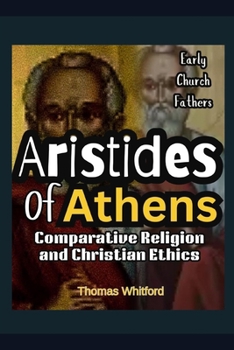Aristides of Athens: Comparative Religion and Christian Ethics: Early Church Fathers
Aristides of Athens stands among the earliest and most eloquent voices in Christian apologetics. Writing in the second century CE, he addressed his Apology to Emperor Hadrian, offering a bold and reasoned defense of Christianity against the prevailing religious traditions of his time. With striking theological clarity and a profound ethical vision, Aristides contrasts Christian morality with the practices of paganism and Judaism, presenting a faith that is both intellectually coherent and morally transformative.
This book reintroduces Aristides not as a relic of early Christian history, but as a thinker whose insights into religion, ethics, and cultural engagement remain urgently relevant. In an age marked by religious pluralism, moral uncertainty, and the search for authentic spiritual identity, Aristides of Athens: Comparative Religion and Christian Ethics offers a model of thoughtful, respectful, and courageous dialogue.
Designed for theologians, historians, ethicists, and students of comparative religion, this study also serves pastors, educators, and lay readers seeking to understand the ethical foundations of Christian witness and the historical roots of interfaith engagement. Through a close reading of the Apology, contextual analysis, and thematic exploration, the book:
Illuminates Aristides' ethical framework and the moral distinctiveness of early Christianity
Explores his comparative religious method and theological assumptions
Situates Aristides within the broader apologetic tradition of the early church
Draws contemporary relevance for Christian ethics in a pluralistic society
Engaging both ancient texts and modern questions, this work invites readers to rediscover Aristides as an ethical visionary whose voice still speaks with clarity, conviction, and compassion.





